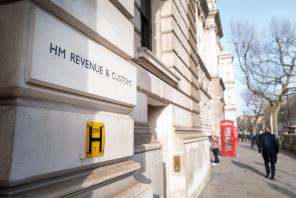

Jim Harra, deputy chief executive and permanent secretary at HMRC, stated there were cases where the tax office did not open enquiries or make discovery assessments in time to collect outstanding tax owed for every year in which a person used disguised remuneration avoidance.
In a letter to Nicky Morgan MP, chairman of the Treasury select committee, he admitted: "HMRC may have missed opening enquiries into some cases where full and complete information about the scheme was provided to us."
Individuals wishing to reach a settlement with HMRC over disguised renumeration schemes are being asked to make a "voluntary" payment of tax as part of the settlement.
Disguised renumeration schemes involve individuals receiving part of their salary in the form of loans, which were never intended to be repaid.
HMRC has claimed there are about 50,000 people who used disguised renumeration schemes.
The taxman has sent "Contractor Loan Settlement Opportunity" packs to individuals they believe owe tax.
Mr Harra told Ms Morgan that as part of some settlements, taxpayers are now being asked to make payments on a voluntary basis, as the time period for HMRC to collect the tax has expired.
HMRC have eight years to chase tax debts under normal circumstances, but if taxpayers want to reach a settlement on this issue, the tax office may want payment for years prior to this.
Because the loans which were used as part of the scheme have not been repaid, HMRC argued the taxes are owed now, and so it is not retrospectively applying the legislation.
But Sir Ed Davey, who tabled an amendment to the finance bill that asked the government to investigate the impact of this rule, said many of the people involved had their tax file for a particular tax year closed.
As these individuals are now being asked to pay a tax bill, his view is that the way HMRC is acting to chase debts relating to disguised renumeration schemes is retrospective and so "against the rule of law."
Ms Morgan said the danger of allowing rule changes to apply retrospectively is that it removes "certainty."
She wrote: "The value of appropriate and proportionate safeguards to protect taxpayer right to certainty is acknowledged in the new extended time limits for assessing undeclared offshore income and gains where the usual tax assessment time limits of four or six years have been increased to 12 years.
"The government has explained that it requires an extended 12 year assessing time limit for offshore matters because it can take longer to establish the facts in these cases, for example when HMRC needs to obtain information from or with the help of an overseas tax authority.
"The government has nevertheless put in place taxpayer safeguards which mean that the extended time limits cannot be used if HMRC received the information necessary to identify the lost tax from another tax authority before the end of the normal four or six year time limit and HMRC could reasonably have assessed the tax before the expiry of that time limit."
Individuals facing large tax bills as a result of loan charge legislation will not be forced to sell their homes to settle the debt, a representative of HMRC told the Treasury select committee.
david.thorpe@ft.com



